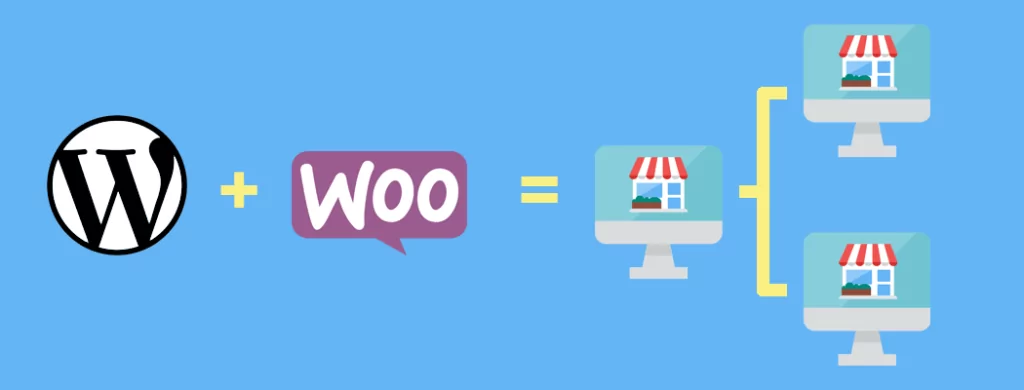In today’s digital economy, the ability to accept payments directly on your WordPress website has become a critical business function—one that’s elegantly solved by implementing the right WP payment plugin. Whether you’re selling products, offering subscription services, or collecting donations, the technology behind WordPress payment solutions has evolved dramatically, offering enterprise-level functionality without requiring extensive coding knowledge.
As developers who have built and optimized numerous WordPress and WooCommerce plugins, we at Progressus understand the technical nuances that separate merely functional payment systems from those that drive conversion and revenue growth. This comprehensive guide will walk you through everything you need to know about WordPress payment plugins in 2025.
What is a WP Payment Plugin?
A WP payment plugin serves as the critical bridge between your WordPress website and payment processors like Stripe, PayPal, and others, allowing you to securely collect payments without redirecting customers away from your site. These plugins transform regular WordPress sites into fully-functional payment-accepting platforms through deep integration with various payment gateways.
Since we’re WooCommerce developers at heart, that’s where most of our experience lies. This naturally gives us a solid perspective when it comes to looking at all the different payment options WordPress has to offer.
WordPress payment plugins enable:
- Direct integration with payment processors like Stripe, PayPal, Square, and Authorize.net
- Secure handling of sensitive payment information with proper data encryption
- Processing of multiple payment types including one-time purchases, recurring payments, and donations
- Collection of customer information through customizable payment forms
- Automatic calculation of taxes, shipping, and other order components
The fundamental value of these plugins lies in their ability to handle complex payment processes while presenting a seamless experience to your customers. Instead of navigating away to complete a transaction, users remain on your WordPress site throughout the entire payment process, significantly reducing abandonment rates and increasing conversion.
Top WordPress Payment Plugins for 2025
The WordPress payment plugin ecosystem has matured significantly, with several standout solutions that address different business needs while maintaining the security and reliability required for financial transactions.
WooCommerce – Best for Full Online Stores
WooCommerce stands as the most comprehensive e-commerce solution for WordPress with over 8 million active installations.
Key features:
- Complete online store functionality supporting physical and digital product sales
- Integration with 100+ payment gateway extensions including PayPal, Stripe, and Square
- Advanced inventory management, shipping calculation, and tax handling
- Built-in security features including SSL-encrypted transactions
The WooCommerce plugin itself is free, though transaction fees depend on your chosen payment processors, and premium add-ons may be required for advanced functionality.
WP Simple Pay – Best for Quick Payment Forms
WP Simple Pay has established itself as the leading Stripe payment plugin with over 14,000 active installations, offering an impressive balance of simplicity and functionality.
Key features:
- 5-minute setup with no shopping cart required for immediate payment acceptance
- Support for 10+ payment methods including Apple Pay, Google Pay, and ACH direct debit
- Drag and drop builder for creating customizable payment forms
- Purchase restrictions based on inventory, time limits, or user roles
- Robust payment flexibility with support for both one-time and subscription payments
The free version includes basic features with a 3% transaction fee, while premium plans start at $49.50/year with additional features like custom fields and payment form templates.
WPForms – Best Payment Form Builder
With over 5 million active installations, WPForms offers exceptional form-building capabilities with integrated payment processing.
Key features:
- Integration with several payment gateways including PayPal, Stripe, Square, and Authorize.net
- Smart conditional logic for dynamic payment forms that automatically calculate totals
- Specialized templates for donation forms, event registrations, and booking payments
- User-friendly interface requiring minimal coding knowledge
WPForms’ Lite version includes Stripe payments functionality, while the Pro version starts at $49.50/year and offers more advanced payment options and integrations.
Easy Digital Downloads – Best for Digital Products
For businesses focused on selling digital files, Easy Digital Downloads (EDD) offers specialized functionality with over 50,000 active installations.
Key features:
- Purpose-built for selling digital products like software, eBooks, and audio files
- Automatic file delivery upon successful payment completion
- Flexible licensing options for software vendors
- Comprehensive discount codes and promotional tools
The core EDD plugin is free, with premium extensions available for additional functionality like recurring payments and content restrictions.
Key Features to Look for in WP Payment Plugins
When evaluating a WP payment plugin for your business, certain features serve as non-negotiable requirements in today’s complex payment landscape.
Multiple Payment Gateway Support
The best WordPress payment plugins support several payment gateways, giving your customers payment options that match their preferences:
- Credit and debit cards processing through major providers
- Digital wallet support (Apple Pay, Google Pay)
- Bank transfer and direct debit options
- Local payment methods relevant to your target markets
Supporting multiple payment gateways not only improves the customer experience but also provides redundancy in case one processor experiences downtime.
Security and Compliance Features
Payment security is paramount when handling financial transactions on your WordPress website:
- PCI DSS compliance: Ensure your plugin follows Payment Card Industry Data Security Standards for protecting card details
- SSL integration: Secure Sockets Layer encryption is essential for all payment data transmission
- Tokenization: Advanced plugins store tokens rather than actual card details
- Fraud protection: Look for plugins that include real-time transaction validation and fraud detection systems
Progressus has implemented PCI-compliant payment systems for numerous clients, and we’ve found that security features should never be compromised regardless of budget constraints.
Customization and Integration Options
The ability to customize your payment process and integrate with other systems dramatically enhances functionality:
- Custom form fields: Collect additional information during checkout
- Branding options: Match payment forms to your website design
- Email automation: Configure payment confirmations and receipts
- CRM integration: Connect payment data with your customer relationship management system
Our experience integrating payment systems with other business tools has shown that flexibility in these areas significantly impacts operational efficiency.
Mobile Responsiveness
With mobile commerce continuing to grow, your payment forms must function flawlessly on smartphones and tablets:
- Responsive design that adapts to screen sizes
- Touch-friendly interface elements
- Streamlined mobile checkout experience
- Support for mobile payment methods
Specialized WordPress Payment Solutions
Beyond general-purpose payment plugins, the WordPress ecosystem offers specialized payment solutions designed for specific business models and revenue streams.
Membership and Subscription Plugins
For businesses built around recurring payments, specialized membership site plugins offer enhanced functionality:
- MemberPress: Offers automated billing with trial periods and tiered pricing (starting at $179.50/year)
- Restrict Content Pro: Focuses on content protection with integrated payment processing
- Paid Memberships Pro: Provides flexible subscription options with content dripping capabilities
These plugins excel at managing recurring payments and controlling access to premium content, making them ideal for subscription-based businesses.
Digital Download Solutions
When selling digital files, specialized solutions offer advantages over general e-commerce plugins:
- Easy Digital Downloads: Handles software, eBooks, and digital media sales with automatic delivery
- WooCommerce Digital Products: Extends WooCommerce with digital-specific features
- Sell Digital Downloads: Lightweight option for simple digital product sales
The key advantage of these specialized plugins is their streamlined workflow for delivering digital files immediately after payment confirmation.
Donation and Fundraising Plugins
Non-profit organizations and cause-based businesses benefit from donation-specific features:
- GiveWP: Comprehensive donation management with campaign goals and donor management
- Charitable: Focuses on creating compelling donation forms with minimal fees
- WPCharitable: Specializes in non-profit donations with fundraising campaign tracking
These plugins typically include donation forms optimized for conversion and reporting tools designed specifically for fundraising activities.
Payment Gateway Compatibility
Understanding which payment gateways work with your chosen plugin is crucial for implementation planning.
Major Payment Processors
Most WordPress payment plugins integrate with these leading payment processors:
Payment Gateway | Coverage | Typical Fees | Key Features |
|---|---|---|---|
Stripe | 140+ countries | 2.9% + $0.30 per transaction | Comprehensive API, subscription billing |
PayPal | Global | 2.9% + $0.30 per transaction | Wide recognition, buyer protection |
Square | US, Canada, UK, Australia | 2.6% + $0.30 per transaction | In-person + online payments |
Authorize.net | US, Canada, UK, Europe, Australia | 2.9% + $0.30 + monthly fees | Enterprise-level security |
Alternative Payment Methods
Modern payment plugins increasingly support alternative payment options:
- Digital wallets: Apple Pay and Google Pay for mobile-optimized one-click checkout
- Buy now, pay later: Services like Klarna and Afterpay for flexible payment terms
- Cryptocurrency: Solutions like NowPayments supporting Bitcoin and other cryptocurrencies
- Local payment methods: Region-specific options like SEPA Direct Debit (Europe) or Boleto (Brazil)
Our implementation experience has shown that offering local payment options can significantly increase conversion rates in international markets.
Pricing and Cost Considerations
Understanding the total cost of ownership for your payment solution requires looking beyond the advertised plugin price to consider transaction fees, monthly fees, and potential implementation costs.
Plugin Pricing Models
WordPress payment plugins typically follow these pricing structures:
- Free plugins: Basic functionality with limited payment gateway options
- Freemium: Free core plugin with premium add-ons (WooCommerce model)
- Annual subscription: Yearly payment for premium features and support
- One-time purchase: Single payment for perpetual license (becoming less common)
Transaction Fee Structures
Each payment gateway charges its own fees, typically following these patterns:
- Percentage + fixed fee: Most common model (e.g., 2.9% + $0.30 per transaction)
- Monthly subscription + lower per-transaction fee: Common for higher-volume businesses
- Microtransaction pricing: Special rates for very small transaction amounts
When calculating total costs, consider both the plugin cost and the ongoing transaction fees, which often represent the larger expense over time.
Setup and Installation Process
Most payment plugins follow a similar implementation process, though complexity varies based on features and customization needs.
Common Setup Requirements
Before beginning installation, ensure you have:
- Valid SSL certificate installed and active on your WordPress website
- Payment processor merchant account with API credentials
- WordPress admin access for plugin installation
- Business information ready for payment processor verification
Installation Steps
- Install the plugin through the WordPress dashboard or via direct upload
- Connect to your payment processor using the setup wizard
- Configure your payment forms or checkout pages
- Test transactions using sandbox/test mode
- Go live with your payment system
Our development team has found that thorough testing in a staging environment before deployment can prevent costly issues when accepting real payments.
Frequently Asked Questions
Do I need a shopping cart to accept payments with WordPress payment plugins?
No, not all payment solutions require a shopping cart. Plugins like WP Simple Pay and Accept Stripe Payments allow you to create simple payment forms for direct transactions without implementing a full e-commerce system.
Which payment plugin works best for recurring subscription billing?
For subscription management, specialized plugins like MemberPress offer the most robust features for managing recurring payments, including automated billing, trial periods, and subscription management tools.
Can I accept cryptocurrency payments on my WordPress website?
Yes, several plugins now support cryptocurrency payments. You can integrate crypto payment options using specialized gateways like NowPayments or through Stripe’s cryptocurrency support.
What security measures are included with WordPress payment plugins?
Modern payment plugins include PCI compliance features, data encryption, and tokenization. However, you must also maintain SSL certification and keep your WordPress core and plugins updated to ensure maximum security.
Choosing the Right WP Payment Plugin
Selecting the optimal payment solution depends on your specific business model and requirements:
- Simple payment collection: WP Simple Pay offers the quickest implementation for basic payment needs
- Full e-commerce functionality: WooCommerce provides comprehensive product management and checkout options
- Digital product sales: Easy Digital Downloads specializes in selling and delivering digital files
- Membership or subscription: MemberPress excels at recurring billing and content access control
The key is aligning the plugin’s strengths with your business requirements rather than simply choosing the most popular option.
Conclusion
The right WP payment plugin does more than just enable transactions—it creates a seamless customer experience that significantly impacts conversion rates and business growth. As payment technologies continue to evolve, staying current with the latest security standards and integration capabilities ensures your WordPress website remains competitive in an increasingly digital marketplace.
With over a decade of experience developing and optimizing WordPress and WooCommerce payment solutions, Progressus has the technical expertise to help you implement the right payment system for your specific business needs. Whether you’re starting from scratch or optimizing an existing implementation, our team can ensure your payment process is secure, efficient, and aligned with your business goals.
Contact our WordPress payment integration specialists today for a personalized assessment of your payment processing requirements and discover how we can help transform your WordPress site into a revenue-generating platform.


